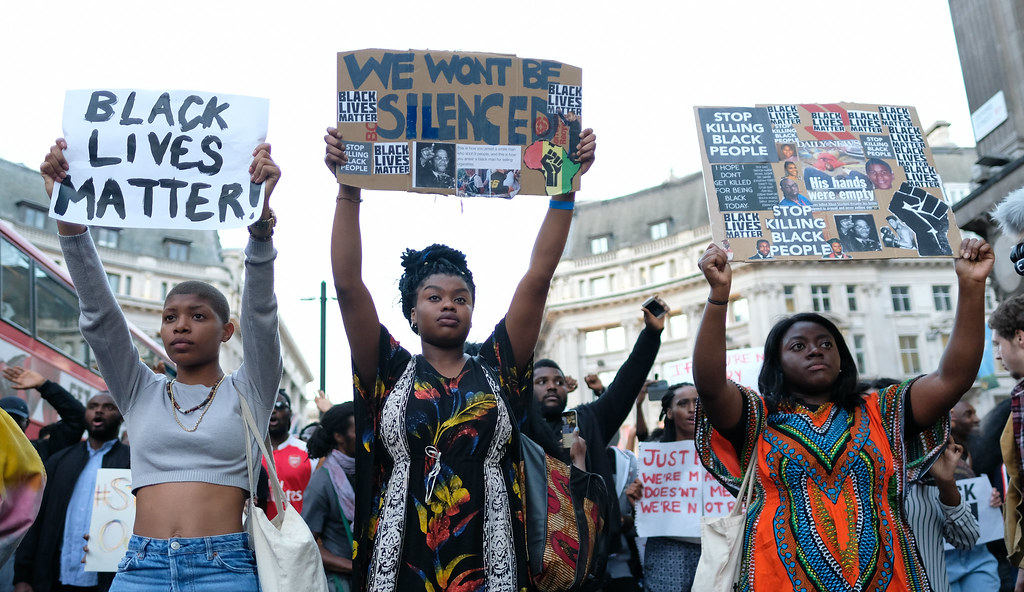A new study published in the Journal of Applied Developmental Psychology finds that racial stress significantly impacts the development of Black youth in the U.S. and that connecting these individual experiences to larger social factors can improve mental health while also leading to action for systemic change.
The researchers, led by psychologist Elan Hope at North Carolina State University, investigated how racial stress is related to the development of critical consciousness, the ability to relate personal experiences to broader political and structural forces. The findings suggest that providing Black youth with opportunities to discuss and process their experiences of marginalization can lead them to engage in active efforts to create change—improving their own sense of agency and mental health while also improving the world.
“Black youth experience racism in neighborhoods and schools, making the management of these experiences a part of their everyday lives,” Hope and her coauthors explain. “For Black adolescents, one theorized response to racism is to engage in critical action as an act of self-preservation to mitigate the negative effects of stress caused by racial oppression and as an act of resistance to change the very conditions that sustain racial oppression.”

by alisdare1
Adolescence is a crucial time in one’s racial and ethnic identity development. Recent research has highlighted the impact of systemic racism and racial trauma on development, especially in youth from marginalized racial and ethnic groups.
As Black teens start to see and understand the significance of the discrimination they face based on their racial identity, their lives can change in significant ways. Research on Black and other racial minority teens has linked the experience of racial discrimination to negative educational and mental health symptoms, for example.
However, research on stress from racism has also highlighted the development of critical consciousness in these teens. Building upon Paolo Freire’s work in Brazil on how education can be used as a tool for liberation and social justice for the oppressed, psychologists have understood critical consciousness as comprising three essential components:
- Critical reflection: Developing an understanding of structural inequalities and cultivating an egalitarian perspective (the view that all people are equal and deserving of rights and dignity);
- Critical agency: Developing a sense that one can be an agent of social change; and
- Critical action: Beginning to take steps to tackle systemic inequities.
The authors of this study propose that critical action may be a path for teens learning about their sociopolitical worlds that can reduce stress related to racism while also producing a change in the larger social system.
By looking at how these Black teens experience racism at multiple levels (individual, institutional, cultural), and the connection between these experiences and the development of critical consciousness, this study contributes to our understanding of how marginalized youth can be prepared to struggle with the systemic injustices affecting their well-being.
The authors distinguish between three types of racial stress: individual experiences of racism (e.g., non-Blacks staring at Blacks in an unwelcome manner), institutional (e.g., being punished for something a White student got away with), and cultural (e.g., getting negative messages from the media about Black people).
Previous research on the experiences of racism predicting critical consciousness indicates that these different types of racial stress may have different relationships with the three aspects of critical consciousness (reflection, agency, and action).
These researchers aimed to understand better how certain types of racial stress relate to critical consciousness. With a sample of 594 Black adolescents (13-18 years) across the U.S., the researchers used measures of racial stress experiences across the different types of racism (individual, institutional, cultural) and measures of critical consciousness (critical reflection – including egalitarian beliefs, agency, action) to analyze their relationships with each other using structural equation models.
In line with the sociopolitical development theory, the researchers hypothesized that racial stress would be positively associated with critical reflection (perceived inequality), critical agency, and critical action. However, they expected racial stress to have a negative effect on beliefs in egalitarianism among Black adolescents in the study. They also looked to test whether critical agency was influenced by critical reflection, and thus indirectly related to critical action.
These findings demonstrate that increased individual, institutional, and cultural, racial stress are directly associated with critical action in different ways. Individual racial stress was positively related to critical reflection (perceived inequality but not egalitarianism), critical agency, and critical civic action. Institutional racial stress was positively associated with perceived inequality and civic action while being negatively associated with egalitarianism. Cultural racial stress was positively associated with critical reflection (perceived inequality and egalitarianism), critical agency, and critical civic action.
“For Black youth, beliefs that society should be just and equal for all groups is most positively related to critical action through the youths’ beliefs that they can actually be a part of making that just world a reality,” the researchers add.
Across all types of racial stress experienced, egalitarian beliefs were positively associated with critical agency, even though they didn’t directly affect critical action. The authors speculate that individual and institutional racial stress in Black youth might be related to less egalitarianism because such beliefs are grounded in a hopeful vision for an equal society. It may be that such experiences have the effect of seeing this egalitarian idealism as useless.
The authors note that since the data gathered were from cross-sectional self-report surveys, and the results cannot be used to make causal statements on how racial stress and critical consciousness develop over time within an individual. While acknowledging that their sample for this study was geographically diverse and thus might be more generalizable to Black teens across the U.S., they also suggest future research to examine how racial identity and socialization, among other sociocultural factors, might influence the relationships between experiencing racial stress and critical consciousness.
“Researchers have examined how youth participatory action research and race-based interventions can provide opportunities for Black youth to engage in critical reflection and critical action. Our findings suggest that these programs may also consider addressing how youth experience stress from racism in relation to their own sociopolitical beliefs and actions.”
Based on these findings, the authors recommend that mental health professionals and clinicians can enhance Black adolescents’ emerging critical consciousness by providing them space and time to talk about their lived experiences of racism and process them. Knowing that increased agency is helpful for mental health and critical action, they may be better positioned to help youth come up with ways to challenge the systems of oppression that marginalize them.
****
Hope, E. C., Smith, C. D., Cryer-Coupet, Q. R., & Briggs, A. S. (2020). Relations between racial stress and critical consciousness for black adolescents. Journal of Applied Developmental Psychology, 70, 101184. https://doi.org/10.1016/j.appdev.2020.101184















“The authors distinguish between three types of racial stress: individual experiences of racism (e.g., non-Blacks staring at Blacks in an unwelcome manner), institutional (e.g., being punished for something a White student got away with), and cultural (e.g., getting negative messages from the media about Black people).”
“Based on these findings, the authors recommend that mental health professionals and clinicians can enhance Black adolescents’ emerging critical consciousness by providing them space and time to talk about their lived experiences of racism and process them. Knowing that increased agency is helpful for mental health and critical action, they may be better positioned to help youth come up with ways to challenge the systems of oppression that marginalize them.”
Amazing findings. I thought “mental health symptoms” were genetic? Or a “chemical imbalance”?
I thought that there was a “mental illness” tied into feelings of being persecuted, or victimized?
One thing we did establish and promote, is that a shitty environment results in the teen being treated, not the environment.
Kudos to promoting the industry.
Report comment
Lets not make such topics become a stress factor for non-Black individuals either
Report comment
In other words, listening to a black young person’s experience and validating it can help them feel better? This title makes it seem like “discussing racial stress” is some kind of a special “therapeutic technique” for black youth with “mental health problems.”
Systemic change will happen when we stop talking about common experiences and reactions to our social and economic system as if they are somehow “illnesses” that need to be “treated.” And when listening to someone is considered what kind-hearted and compassionate people do when meeting someone in distress, rather than some sort of “treatment” for “mental illness.”
Report comment
Removed for moderation.
Report comment
Just so well said, Steve. May that day come soon.
Report comment